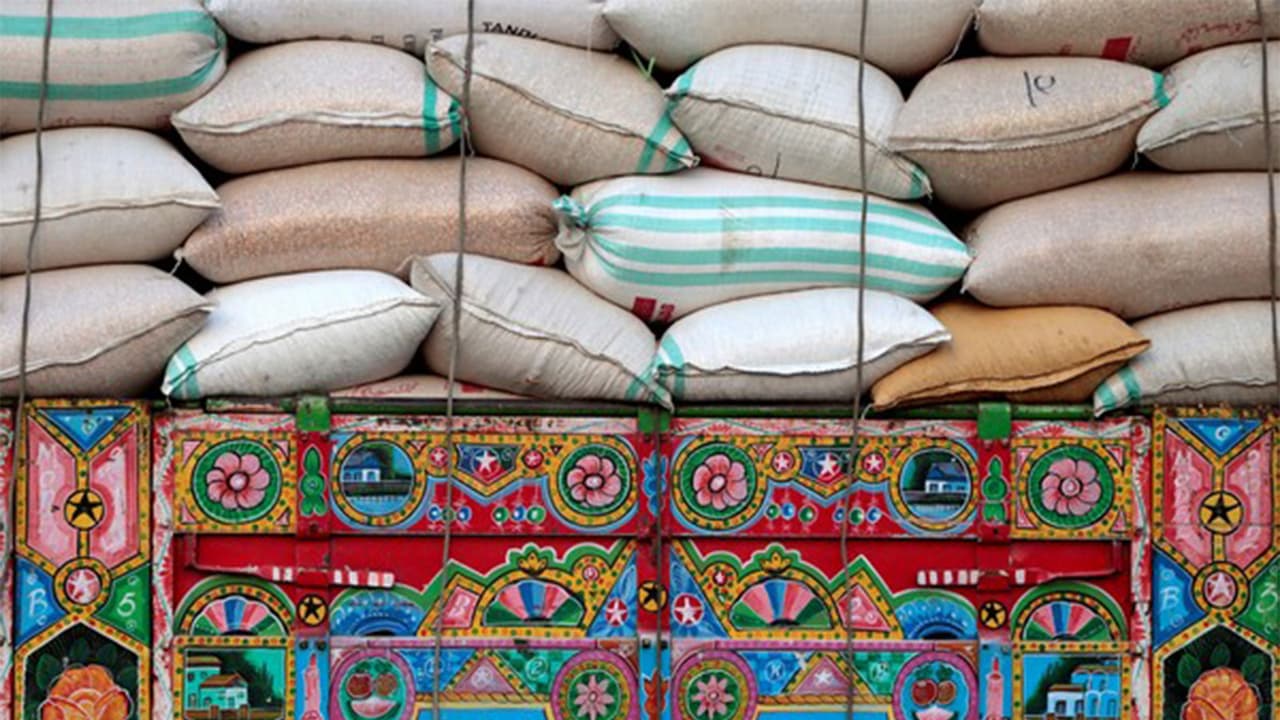Pakistan is geotagging wheat and restricting interprovincial movement to prevent food crisis after floods destroyed farmland and reserves. Rising wheat prices sparked protests while crackdowns on hoarding improved availability and lowered prices.
The Punjab government has stepped up measures, including the geotagging of wheat stocks, to avert a potential food crisis after floods in eastern rivers destroyed farmlands and stockpiles in central districts, Dawn reported. The restrictions imposed on the interprovincial movement of wheat by the provincial administration have already raised prices in Khyber Pakhtunkhwa by up to 68 per cent, sparking protests in Sindh and KP. Sources told Dawn that the decision to curb wheat trade was aimed at ensuring adequate supply in Punjab and avoiding a looming shortage.
The Punjab Price Control and Commodities Management Department has initiated geotagging and physical verification of wheat stocks in warehouses across the province. Secretary Kiran Khurshid issued orders forming a four-member monitoring committee led by Deputy Secretary Shazia Rehman, which will work with the Punjab Enforcement and Regulatory Authority and the food directorate to collect district-level data.
Khurshid said the initiative was intended to register government and private stocks to prepare for any food crisis following the floods.
“The geotagging is just an intervention, not a solution,” she said, adding that tracing wheat would take time. She noted that floods had wiped out large amounts of wheat, and it was now the government’s duty to ensure supply for citizens.
She also said a Strategic Management Wing had been established to digitise the assets, resources and activities of eight directorates under the department. “All the scattered information would be available for the department and higher authorities in one dashboard for monitoring and taking informed decisions,” she said.
According to Dawn, the Punjab Home Department has imposed Section 144 at the request of the price control department, barring mills from using 10,184 metric tonnes of wheat for feed manufacturing. Officials said the provincial government was strictly monitoring wheat movement at exit points. Chief Minister Maryam Nawaz made it clear that her top priority was to prevent a food crisis and ensure citizens received their due share through government packages or other mechanisms. She was quoted as saying that nearly four million people were affected by floods, and the administration needed to guarantee wheat availability for survivors.
Khurshid acknowledged that wheat was being monitored at the Sindh and KP borders because “businessmen would always like to sell their commodities, where they would get a better price”.
She added, “In this situation, the government’s role is to ensure that wheat stocks in the province meet the needs of its people. It will be insane if the government lets its wheat go to other provinces at a lower price and later purchases it at a higher cost for its own people.”
Dawn reported that a crackdown on hoarding and profiteering was also underway. Authorities arrested 107 profiteers, fined 12,043, and registered cases against seven. In cases of overcharging flour prices, 18 officials were arrested, four cases registered, and 1,074 people fined. The department also recovered 334,000 metric tonnes of wheat in anti-hoarding drives.
These actions helped boost flour mill reserves by 165,000 metric tonnes this month. In addition, 360,000 metric tonnes of wheat were ground, ensuring a steady flour supply and reducing prices from PKR 3,800 to PKR 3,000 per 40kg.
Dawn added that the measures have improved availability in the short term, while authorities continue to plan for long-term stability in wheat supplies.
(Except for the headline, this story has not been edited by Asianet Newsable English staff and is published from a syndicated feed)
